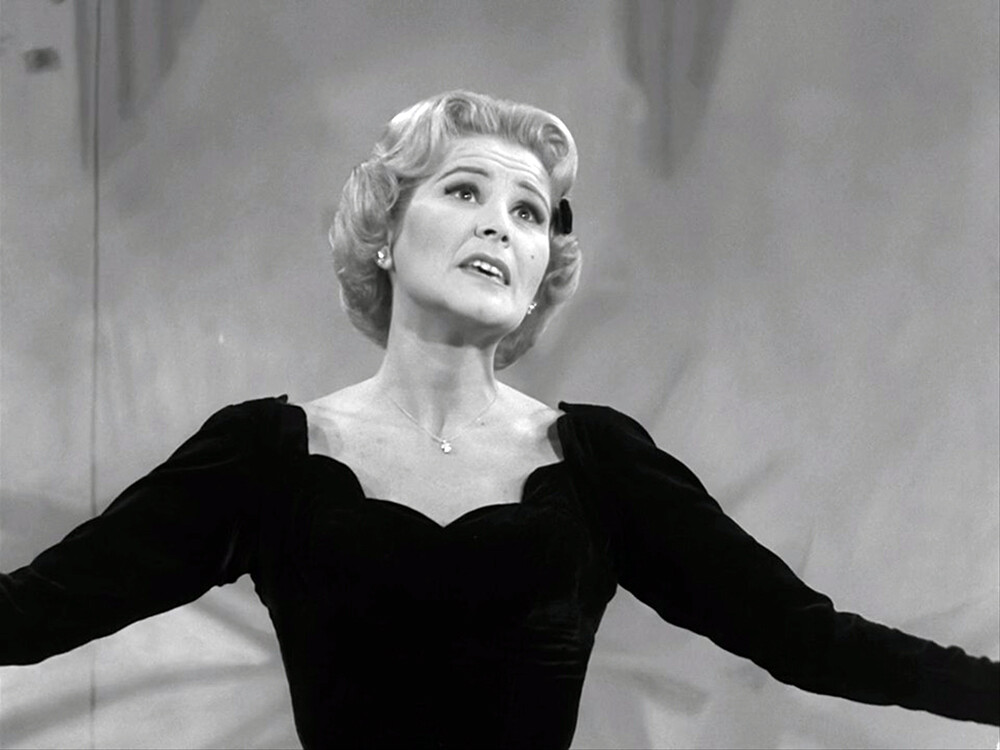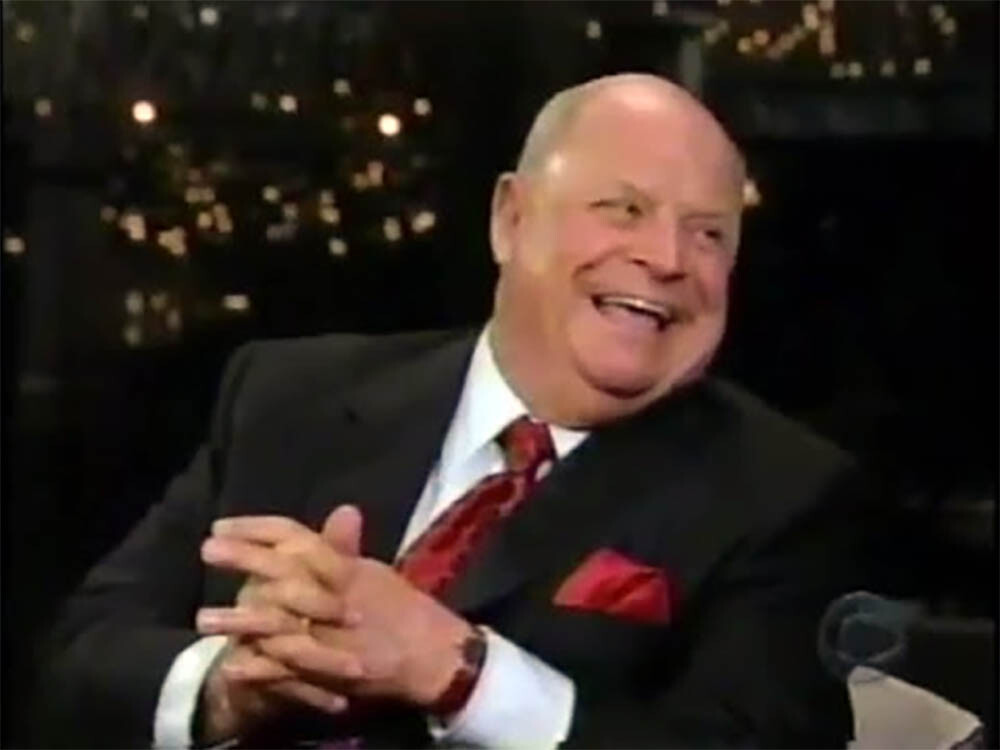Did The Mob Invent The Stand-Up Comic?

Welcome to ComedyNerd, Cracked's daily comedy superstore. For more ComedyNerd content, and ongoing coverage of the definitely mob-run Iran/Contra Affair, please sign up for the ComedyNerd newsletter below.
No, the Mob didn’t invent Milton Berle. Only Milton Berle is responsible for that.
Don't Miss
But according to Kliph Nesteroff’s essential The Comedians: Drunks, Thieves, Scoundrels and the History of American Comedy, organized crime may have invented the term “stand-up comic.”
After vaudeville and Prohibition died around the same time (they're both buried under six feet of concrete in New Jersey), illegal speak-easies turned into “legitimate” nightclubs, though often under the same shady management. So if you were a comic? You worked for the Mob.
Or the Outfit, as comedian Dick Curtis called them. “The Outfit used to manage fighters. A stand-up fighter is a guy that is a puncher. A stand-up guy was a guy who was tough and you could depend on. The Outfit managed fighters and they managed clubs that booked comics, so the term found its way into the lexicon of nightclubs. A guy who just stood there and punched jokes—joke, joke, joke—he was a stand-up comic.”
So it’s fitting that stand-up comics have enjoyed (?) a longstanding relationship with organized crime. And to this day, at least in some corners of the world, mirth and the Mob continue to mingle.
Table Twelve Wants To See You
The end of Prohibition was good for the comedy business, and not just because comedians have been known to throw back a few before, during, and after sets. At least through the end of the 1960s, most cities in America had at least one swank restaurant. And if there was a nightclub, says Nesteroff, the Mob ran the joint.
Selling booze and listening to off-color jokes was a perfect marriage, especially in a place like Miami Beach, which was less regulated than other big cities.
“Large and small mob-run nightclubs were sprinkled all over town: The Beachcomber, Latin Quarter, Murray Franklin's, Ciro’s, Mother Kelly’s, The Paddock Bar, The Clover Club, The Five O’Clock Club, and Place Pigalle,” writes Wayne Federman in The History of Stand-Up : From Mark Twain to Dave Chappelle. Miami was the perfect place to throw back a few dirty martinis and enjoy comics like Rip Taylor, Sammy Shore, Myron Cohen, Don Rickles, and Shecky Greene.
Shecky Greene was lucky to be working anywhere at all.

The Ed Sullivan Show
“Once, actually was attacked by hoodlums (but at least he got a joke out of it),” says comedian David Steinberg. “He would tell the audience, “Frank Sinatra saved my life once. One night when I was walking home, I was jumped by two guys who started to beat the living crap out of me, when suddenly Frank Sinatra showed up and said, ‘Ok, that’s enough.’ ”
Well, that’s part of the story. Seems Sinatra wanted Shecky to join the Rat Pack but he wasn’t interested, says Nesteroff. So yes, Sinatra did call off the goons mid-beating. But it was a Schrodinger's Sinatra situation, because Frank was also the guy who sent the toughs to beat up Shecky in the first place.

Calvada Productions (The character Max Calvada was a mobster on the Dick Van Dyke Show)
Many comic entertainers didn’t mind working the mob-owned clubs. “The Mob was very, very good to me,” says Rose Marie (yep, Sally from The Dick Van Dyke Show). But that didn’t mean the nightclubs weren’t dangerous -- especially if you were an insult comedian.
Take Milton Berle.
Uncle Miltie was a holdover from the vaudeville days, where he was used to doing ten-minute routines. Nightclub comics had to do forty-five, meaning four times the material. Berle was a kind of crook himself, notorious for stealing jokes, but he must not have swiped enough of them in his early nightclub days. Instead of using written material, he’d work the room, poking fun at the plastered patrons who paid for the privilege.

NBC
You can guess what happened next. One night, Berle decided to pick on a random mug who turned out to be “Pretty” Amberg, a mobster famous for stabbing guys in the face with flatware. Amberg was also known for being sensitive to insults like the one Berle zinged his way: “Oh, it’s Novelty Night—you’re with your wife.’”
“When the show ended,” Berle remembers, “I went straight to my dressing room." Not so fast, Uncle Miltie.
“‘Table twelve wants to see you.’”
Berle slunk back out to the house. “Nobody at the table nodded or said hello or even smiled at me. I was getting very nervous, so I said, ‘Did you like the show?’ ”
"‘No. It stunk.’”
Then Amberg grabbed Berle by the face and shoved a fork right into his chin. Luckily, another mobster stepped in between them, allowing Berle to get away with only 8 stitches. He knew it could have been worse.
Jerry Lewis also took his life into his hands by running around the audience and acting like a gibbering idiot. He was up to his shtick one night at the Copa when, Lewis says, “I heard this gruff-sounding voice: ‘Why don’t you knock off that shit and be quiet?’”
Not surprisingly, given his obnoxious persona, Lewis leaned into the bit before Albert Anastasia, from an outfit adorably named Murder, Inc., got out of his chair. “The bull ...stuck his finger under my nose. ‘That’s not funny, you son of a bitch. If you open your mouth once more it’ll be without your teeth.’”
Luckily, Lewis’s partner Dean Martin, who allegedly knew guys who knew guys, was able to calm Anastasia down, preserving decades of future telethons.
Toro!
The comedy/crime connection continued into the 1960s and early 1970s. One night in New York, Jerry Orbach, a man we associate with Law and Order, introduced comedian David Steinberg to a big fan, the mobster Joey Gallo.
Steinberg and Gallo hit it off and one night, the comedian was invited to a small dinner party in the mobster’s honor. When Steinberg arrived, he was surprised that Gallo was getting married, right there, right then, and he wanted Steinberg to be the best man. Steinberg was hesitant, but as the saying goes, there are offers you can’t refuse.
A few weeks later, Steinberg and his wife went with the Gallos to see Don Rickles. The club’s owner warned Rickles that “Crazy Joey” had a temper and he should maybe steer clear. We’ll let Rickles take it from here, as he told the story to David Letterman:

CBS
“Dave, that’s like waving a red cape in front of me. Toro! I went after him all night, and he loved it! Tears down his cheeks!”
According to Steinberg, Rickles, either brave or stupid, even dropped to the floor and made machine gun noises.
Instead of being offended, Gallo thought Rickles was a riot. He visited Rickles backstage and invited him to an after-party at Umberto’s Clam Broth House. Rickles (whose manager was also rumored to be Mob-connected) said no thanks. The Steinbergs also called it a night and left after the Rickles show.
It was a good thing for comedy that they did: At around 5 a.m., four gangsters came into Umberto’s and shot Gallo five times. Rickles killed that night, but it was nothing like Gallo’s morning.
Partying with the Russian mob
The tie between comedy and organized crime started unraveling by the 1970s, says Nesteroff. Efforts by Bobby Kennedy and others had lessened the Mob’s grip around the country. But the link was not completely gone.
When comedy clubs exploded in the 1980s, says Federman, alcohol sales paid the way. And because selling booze meant having a liquor license, clubs in some parts of the country were still associated with local mobsters.
Los Angeles’s famous Comedy Store wasn’t run by the Mafia, but the Sunset Strip club has a long history of violence dating from the days when it was a Mob-run club called Ciro's. (It is also, allegedly haunted.) Infamous wise guys like Mikey Cohen hung out there. Walk down the stairs to the basement and you'll see holes in the wall, supposedly drilled there for assassins on the other side to rub out unsuspecting victims back in the day.
Even though the mob-comedian-connection era in the United States is over, organized crime is still mixed up with comedy around the globe.
Perpetually shirtless comedian Bert Kreischer went viral when he cut together clips from a Showtime special about his experiences as an exchange student in Russia. His prodigious ability to down vodka shots led to befriending the exchange program’s bodyguards, who happened to be members of the Russian mob. Kreischer’s drinking skill prompted his new criminal friends to nickname him “The Machine.”
Being the Machine was about more than good-natured partying -- with his newfound pals, Kreischer eventually ran a pool hall scam, stole a boat, and robbed everyone on a train. Not bad for a 22-year-old comic-to-be!
To prove that bad deeds often go unpunished, the story of Kreischer’s fun with the Russian mob is being made into a movie starring Kreischer and Mark Hamill that will be released early next year.
Finally, Asian mobsters also love sidling up to comedy. A Japanese talent agency recently suspended eleven popular comedians for allegedly taking money on the sly from an organized crime group. Taking a job, comedy or otherwise, without going through your agency is called “yami eigyou” -- in English, that’s “dark business.” It’s not clear if the comedians are in trouble for working for gangsters or for not cutting in the agency on its commission.
Back in America, comedy clubs these days are largely run by local interests, often by enthusiastic comedy fans. Not all of the older comics think that’s a good thing.
“When I was working Vegas, the Mob ran Vegas,” says veteran comic Lou Alexander. “The Mob was great to us and they would give us everything: the shows, the rooms, the meals—whatever you want. They really knew how to treat performers. Vegas in the 1960s was real fun. Now it’s corporate.”
For comics like Alexander, having to associate with the dark side to get treated well - that’s the real crime.
Top image: Universal Pictures
